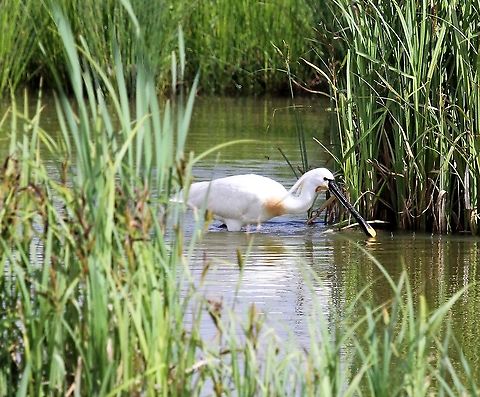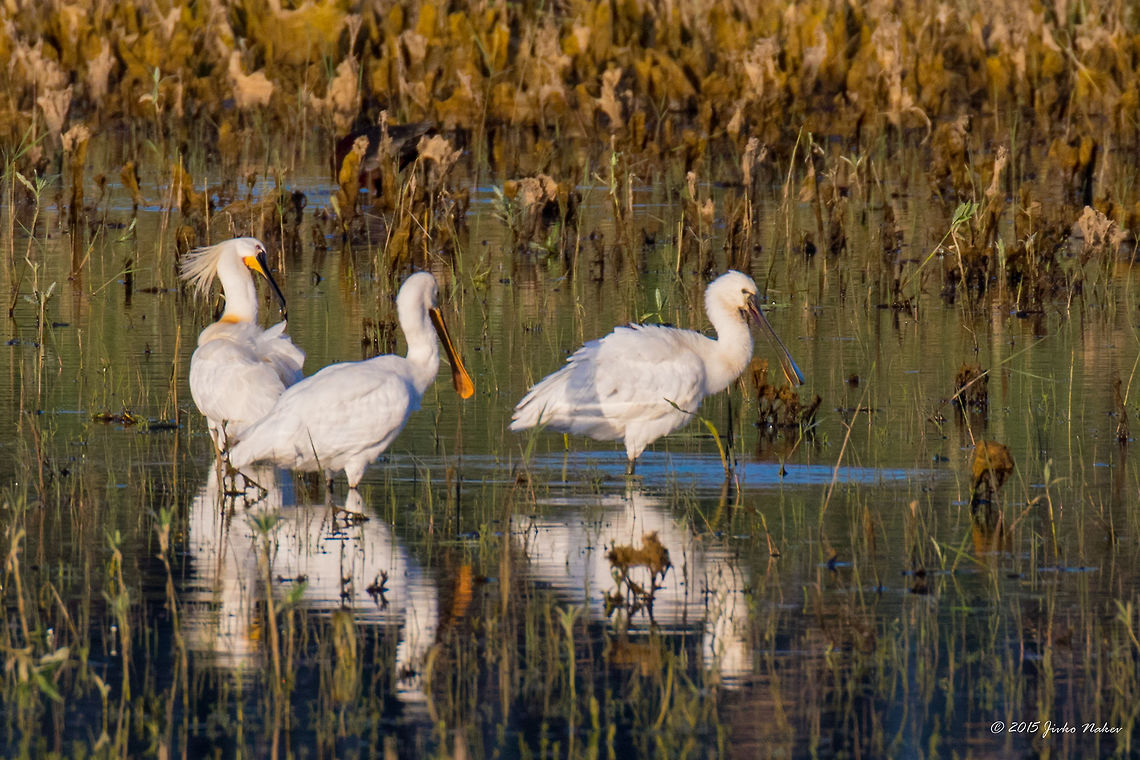
The Eurasian Spoonbill or Common Spoonbill is a wading bird of the ibis and spoonbill family Threskiornithidae.
Similar species: Pelicans, Herons, Ibises
By Jivko Nakev
All rights reserved
Uploaded May 18, 2015. Captured May 1, 2015 06:31 in Unnamed Road, Delta 573 00, Greece.


comments (1)
Who depends on wetlands? Everyone! Healthy wetlands are critical for human survival. What is a wetland? A wetland is an ecosystem that is flooded by water, either permanently or seasonally. So, inland wetlands include marshes, ponds, lakes, fens, rivers, floodplains, and swamps, while coastal wetlands include saltwater marshes, estuaries, and mangroves. Today is WORLD WETLANDS DAY and this year’s theme is “Wetlands and Water”, which emphasizes the importance of wetlands and encourages action to stop their loss.
Wetlands are the planet’s most effective carbon sinks, which means that they can absorb carbon dioxide from the atmosphere. As an example, peatlands, which only cover 3% of the planet’s land surface, but they store at least twice as much carbon as all of Earth’s forests! The battle to halt climate change is daunting. Overwhelming. But, protecting wetlands would be a positive step in this fight. Wetlands are like a secret weapon because they fight the battle for us, and they do it naturally. And yet, we have lost at least 35% of our wetlands since 1970. We are losing wetlands three times faster than forests. Their loss can be attributed to urban growth, increased agriculture, water diversion, and infrastructure development.
Aside from wetlands’ critical role in combating climate change, they are important for so many other reasons. Coastal wetlands help provide a buffer against extreme weather and storm surges. Inland wetlands act as a natural sponge by absorbing rain, preventing droughts, and reducing flooding. Wetlands provide us with clean, drinkable water. And, they provide foods such as fish and rice for millions of people. Wetlands provide medicinal plants, and products like grasses reeds, and poles for building materials. Plus, they support biodiversity! They contain high concentrations of mammals, birds, fish, and invertebrates. As a result of their destruction, wetland-dependent species are in serious decline.
As you can see, wetlands are a source of life for people and wildlife. They are crucial for our survival, and their loss has a negative impact on the quality and availability of water, biodiversity, food security, and carbon sequestration. These impacts are direct and painful. They are obvious and measurable. Yet, the value of wetlands is often unrecognized and undervalued by policy makers. This must change. Every effort, every share on social media, every discussion with a friend, every letter sent to a policy maker, every donation to the cause will make a difference. These efforts combine to collectively protect and restore wetlands, which in turn combats climate change. We are all connected and wetlands perfectly exemplify this truth: Water, life, and wetlands are inseparable. #JungleDragon #WorldWetlandsDay2021 #WorldWetlandsDay
World Wetlands Day Website:
https://www.worldwetlandsday.org/
{Photo Credit: Eurasian Spoonbill (Platalea leucorodia) spotted in Greece by Jivko Nakev}
Posted 4 years ago, modified 4 years ago